QNAP TS-853 Pro 8-bay Intel Bay Trail SMB NAS Review
by Ganesh T S on December 29, 2014 7:30 AM ESTSingle Client Performance - CIFS & iSCSI on Windows
The single client CIFS and iSCSI performance of the QNAP TS-853 Pro was evaluated on the Windows platforms using Intel NASPT and our standard robocopy benchmark. This was run from one of the virtual machines in our NAS testbed. All data for the robocopy benchmark on the client side was put in a RAM disk (created using OSFMount) to ensure that the client's storage system shortcomings wouldn't affect the benchmark results. It must be noted that all the shares / iSCSI LUNs are created in a RAID-5 volume. SMB 3.0 performs very well, but, with the host OS being Windows 8, it wouldn't really be fair to compare it against other NAS units that were processed with a Windows 7 client. In any case, we find enabling SMB 3.0 encryption pulls down the processing rate to around 20 MBps irrespective of the type of traffic. Enabling VMs pulls down the performance. In general, Haswell performs better than Rangeley or Bay Trail, but Asustor's ADM is not yet optimized fully. This allows Synology and QNAP to pull ahead with their Rangeley / Bay Trail solutions.
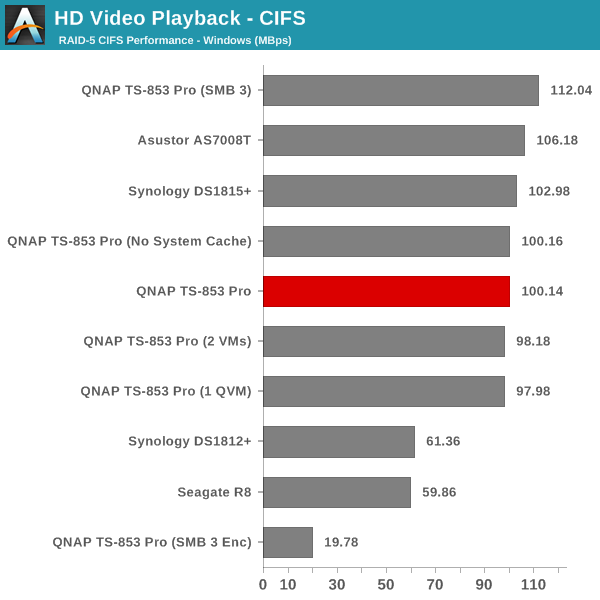
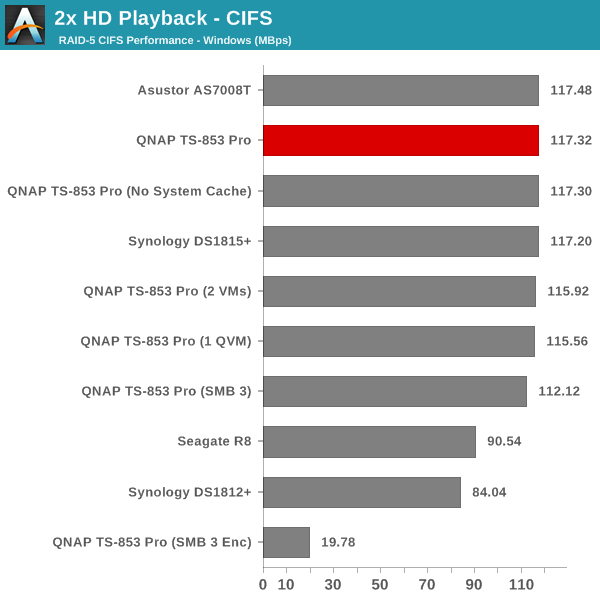
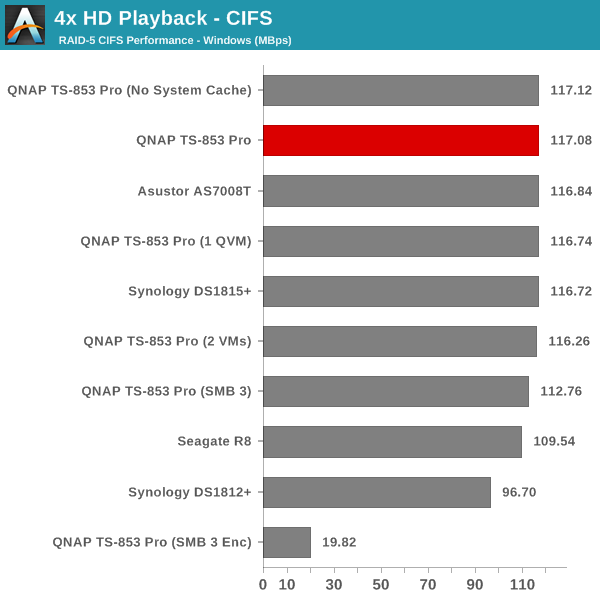
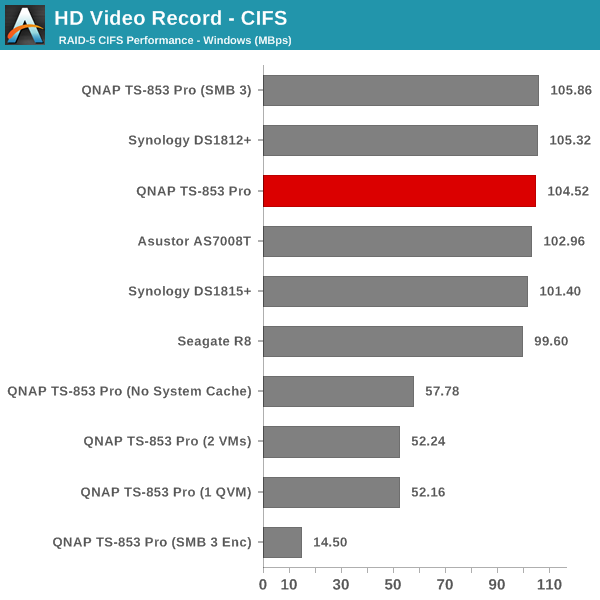
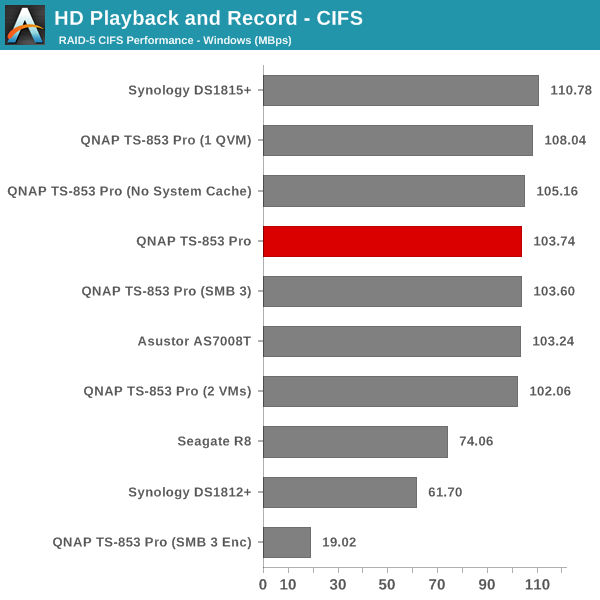
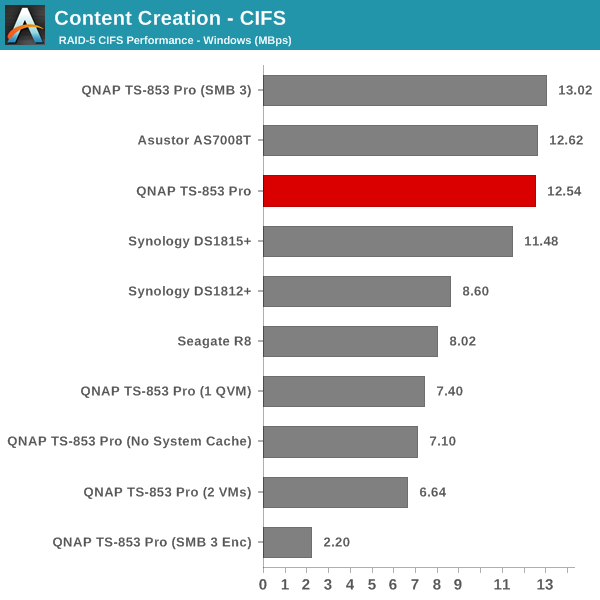
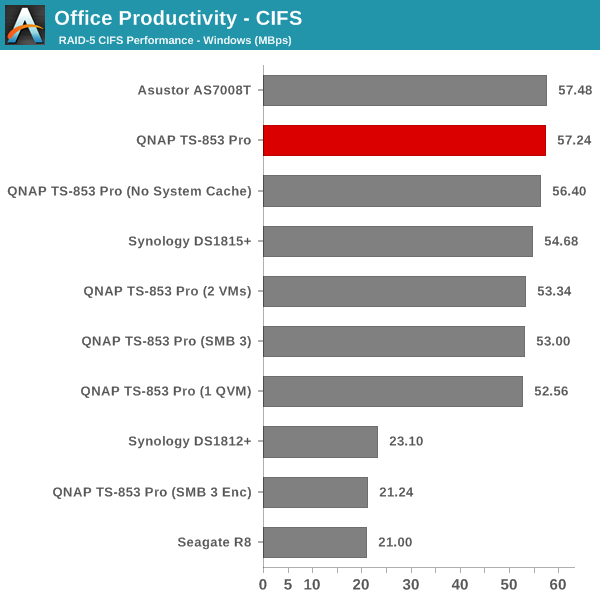
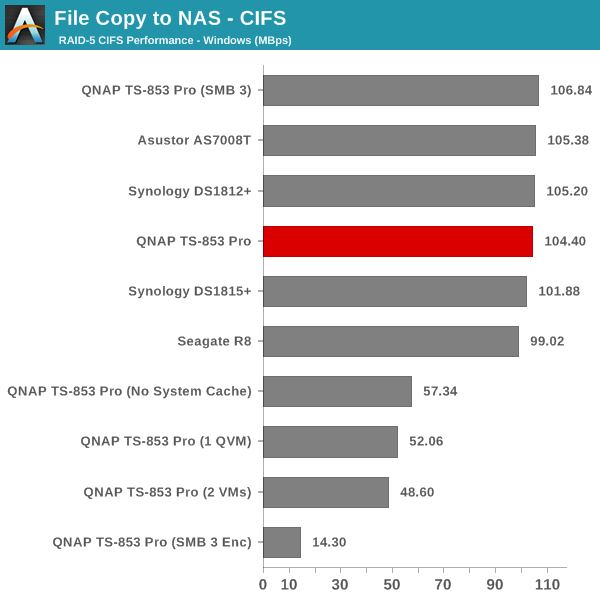
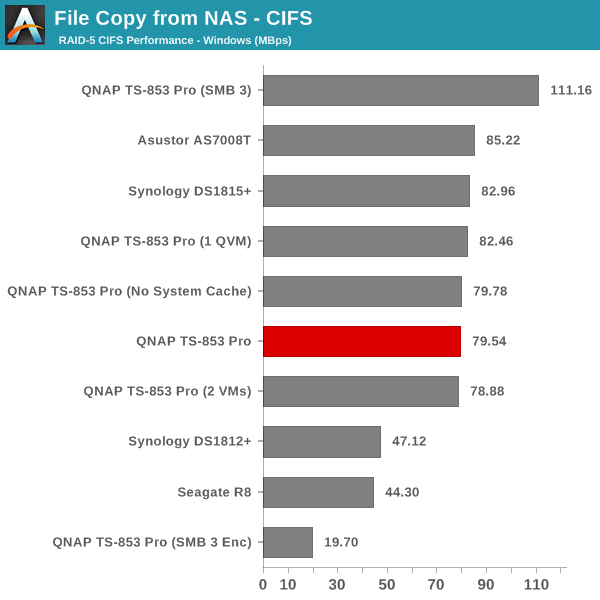
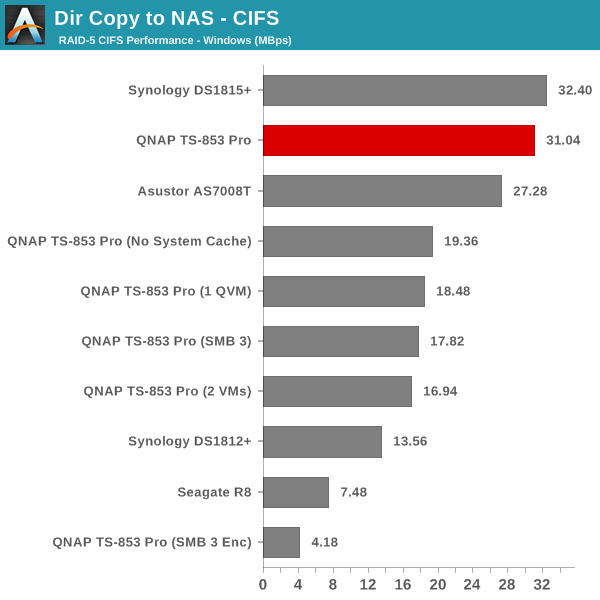
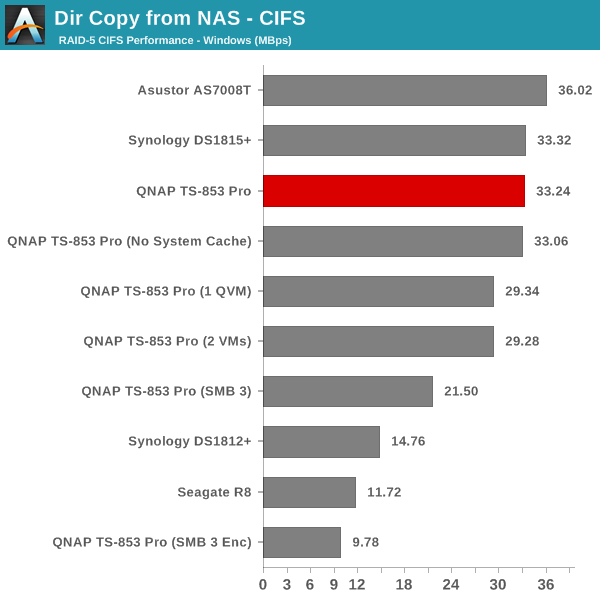
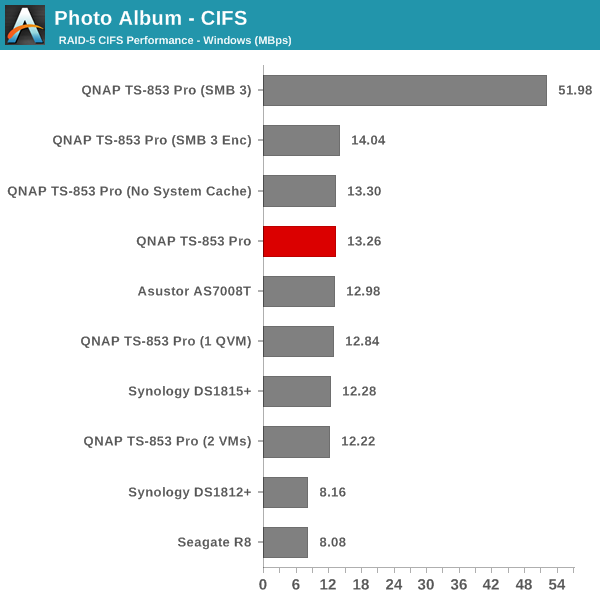
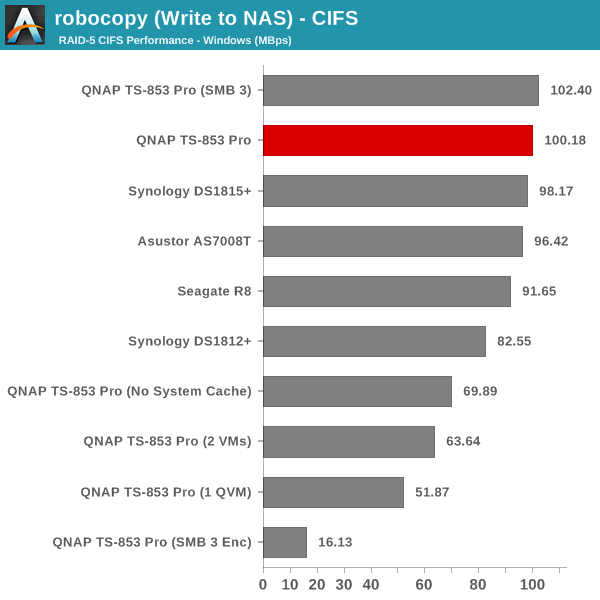
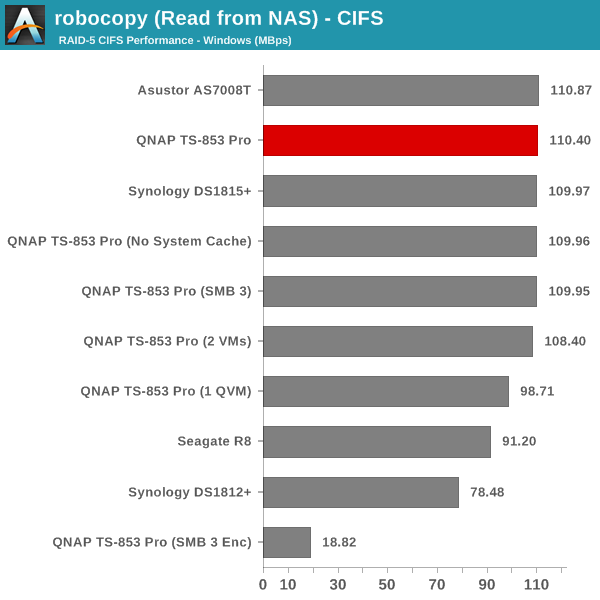
We created a 250 GB iSCSI LUN / target and mapped it on to a Windows VM in our testbed. The same NASPT benchmarks were run and the results are presented below. The observations we had in the CIFS subsection above hold true here too.
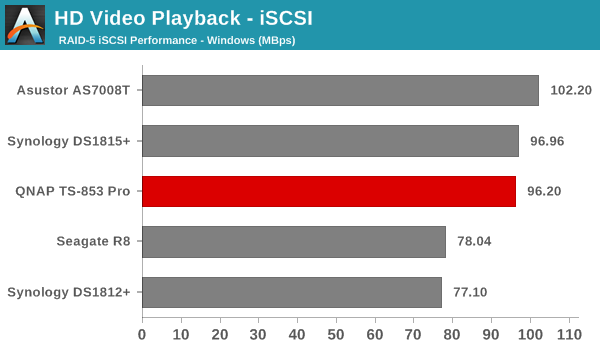
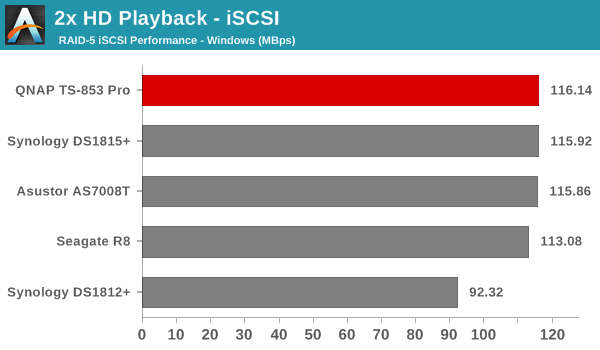
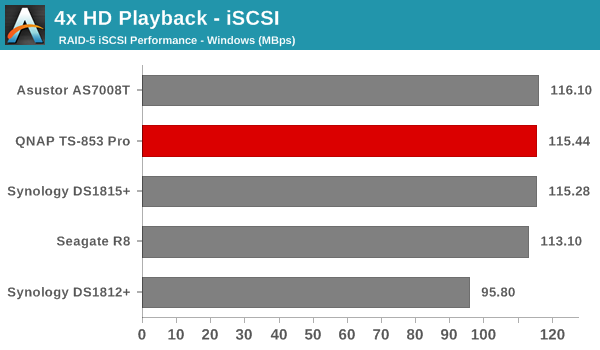
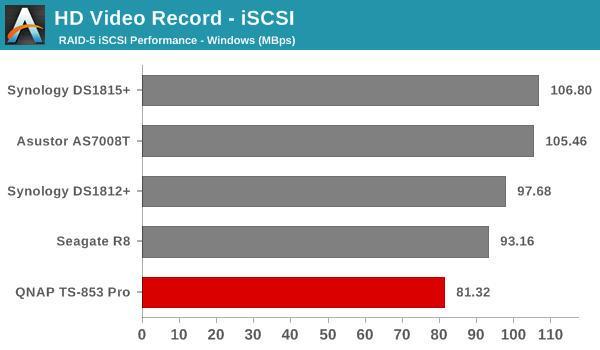
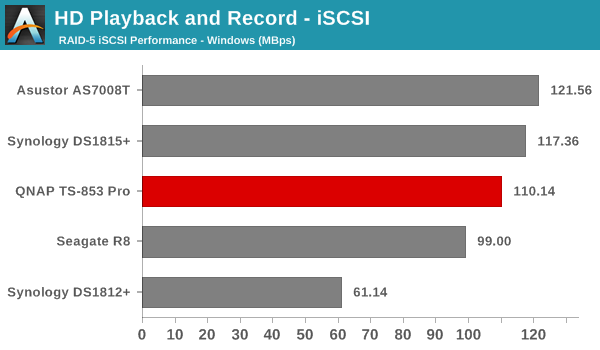
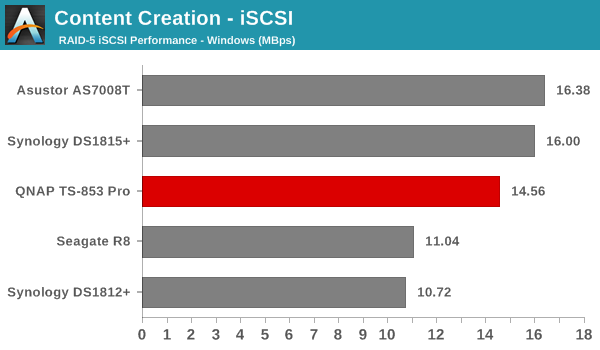
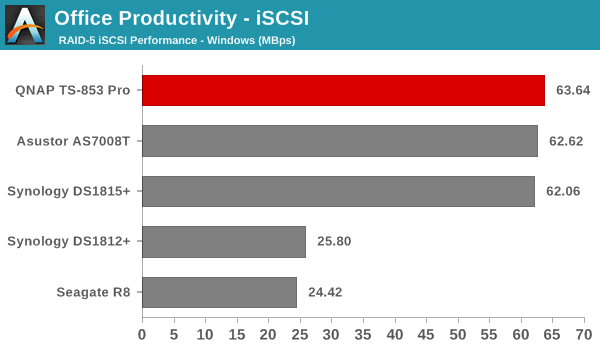
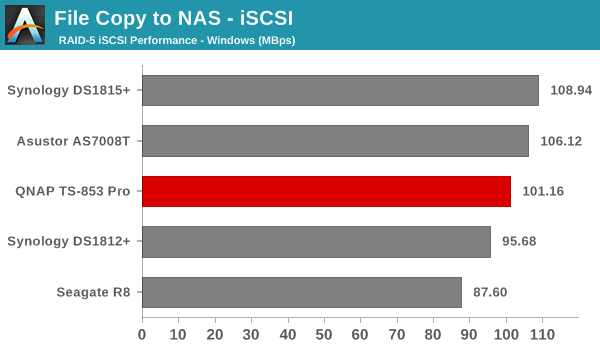
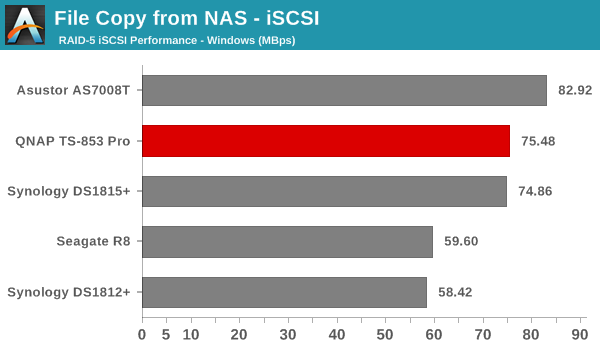
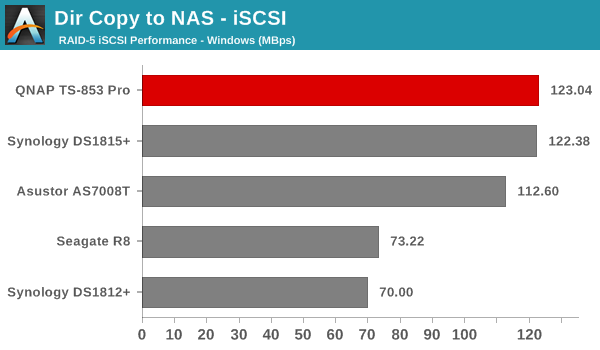
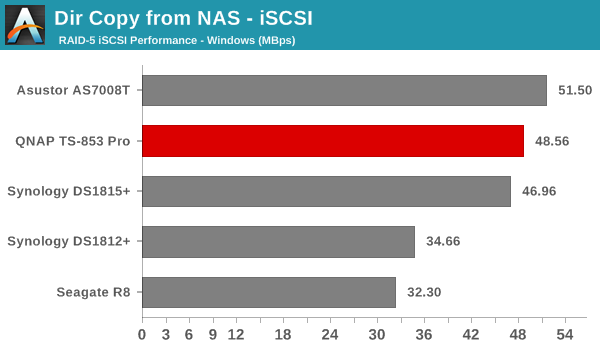
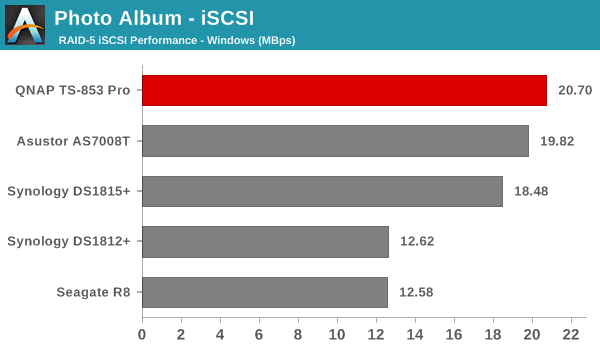
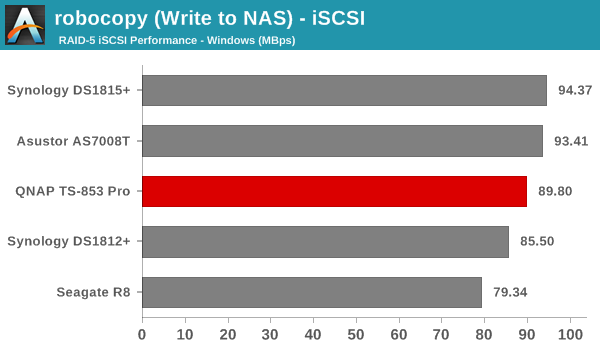
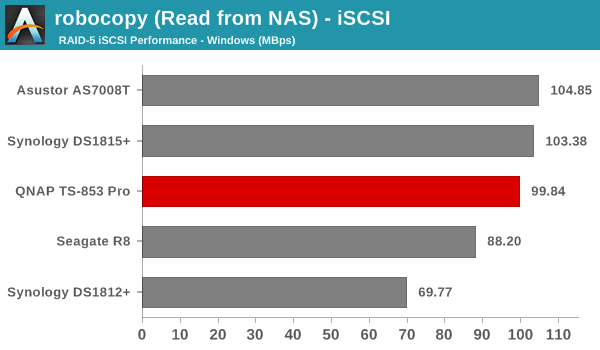
iSCSI testing results closely track the CIFS test results. Note that we only performed evaluation with Windows 7. The system cache was turned on for these tests (though the EXT4 delay allocation was disabled).










58 Comments
View All Comments
ap90033 - Wednesday, December 31, 2014 - link
RAID is not a REPLACEMENT for BACKUP and BACKUP is not a REPLACEMENT for RAID.... RAID 5 can be perfectly fine... Especially if you have it backed up. ;)shodanshok - Wednesday, December 31, 2014 - link
I think you should consider raid10: recovery is much faster (the system "only" need to copy the content of a disk to another) and URE-imposed threat is way lower.Moreover, remember that large RAIDZ arrays have the IOPS of a single disk. While you can use a large ZIL device to transform random writes into sequential ones, the moment you hit the platters the low IOPS performance can bite you.
For reference: https://blogs.oracle.com/roch/entry/when_to_and_no...
shodanshok - Wednesday, December 31, 2014 - link
I agree.The only thing to remember when using large RAIDZ system is that, by design, RAIDZ arrays have the IOPS of a single disk, no matter how much disks you throw at it (throughput will linearly increase, though). For increased IOPS capability, you should construct your ZPOOL from multiple, striped RAIDZ arrays (similar to how RAID50/RAID60 work).
For more information: https://blogs.oracle.com/roch/entry/when_to_and_no...
ap90033 - Friday, January 2, 2015 - link
That is why RAID is not Backup and Backup is not RAID. ;)cjs150 - Wednesday, January 7, 2015 - link
Totally agree. As a home user, Raid 5 on a 4 bay NAS unit is fine, but I have had it fall over twice in 4 yrs, once when a disk failed and a second time when a disk worked loose (probably my fault). Failure was picked up, disk replaced and riad rebuilt. Once you have 5+ discs, Raid 5 is too risky for me.jwcalla - Monday, December 29, 2014 - link
Just doing some research and it's impossible to find out if this has ECC RAM or not, which is usually a good indication that it doesn't. (Which is kind of surprising for the price.)I don't know why they even bother making storage systems w/o ECC RAM. It's like saying, "Hey, let's set up this empty fire extinguisher here in the kitchen... you know... just in case."
Brett Howse - Monday, December 29, 2014 - link
The J1900 doesn't support ECC:http://ark.intel.com/products/78867/Intel-Celeron-...
icrf - Monday, December 29, 2014 - link
I thought the whole "ECC required for a reliable file system" was really only a thing for ZFS, and even then, only barely, with dangers generally over-stated.shodanshok - Wednesday, December 31, 2014 - link
It's not over-stated: any filesystem that proactively scrubs the disk/array (BTRFS and ZFS, at the moment) subsystem _need_ ECC memory.While you can ignore this fact on a client system (where the value of the corrupted data is probably low), on NAS or multi-user storage system ECC is almost mandatory.
This is the very same reason why hardware RAID cards have ECC memory: when they scrubs the disks, any memory-related corruption can wreak havoc on array (and data) integrity.
Regards.
creed3020 - Monday, December 29, 2014 - link
I hope that Synology is working on something similar to the QvM solution here. The day I started my Synology NAS was the day I shutdown my Windows Server. I would, however, still love to have an always on Windows machine for the use cases that my NAS cannot perform or would be onerous to set up and get running.